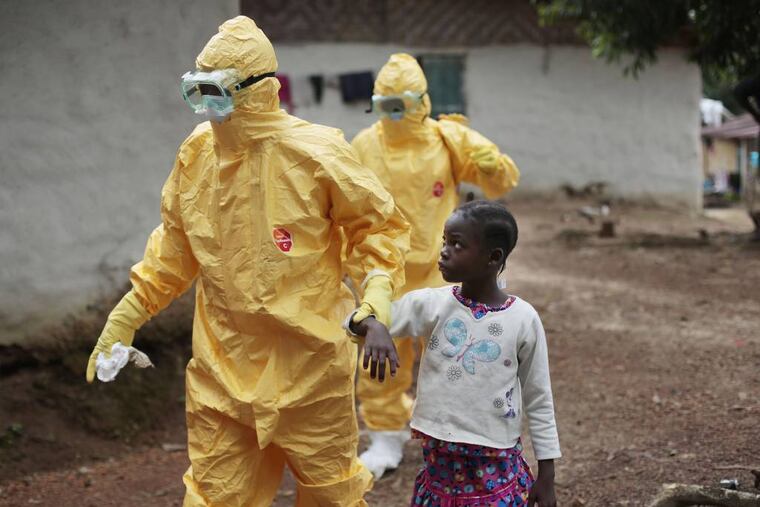Study: Ebola takes worst toll on babies, other young kids
Ebola has taken its greatest toll on babies. About 90 percent of children under age 1 who caught the virus in West Africa died from it, the first large study of the epidemic's impact on children suggests.

Ebola has taken its greatest toll on babies. About 90 percent of children under age 1 who caught the virus in West Africa died from it, the first large study of the epidemic's impact on children suggests.
Those a little older - ages 1 to 4 - fared not much better. Ebola proved fatal for nearly 80 percent of them, too, the study found.
The study was based on case sampling and tracking of more than 1,000 children by the World Health Organization's Ebola Response Team. The work was published as a research letter Wednesday by the New England Journal of Medicine.
Ebola has sickened more than 23,000 people and killed more than 10,000 since the epidemic began more than a year ago. Guinea, Sierra Leone, and Liberia have been hardest hit.
People older than 16 make up 79 percent of the confirmed and probable cases in which ages are known. The new report looks at the rest.
Key findings:
Children got sick faster: The average incubation period was about seven days in babies under 1 and nearly 10 days in 10- to 15-year-olds. It can be as long as 21 days in adults.
Nearly every child under age 1 had a fever, and all children under 16 were more likely to have this symptom than adults.
Children were less likely than adults to report belly, chest, joint, or muscle pain or trouble breathing or swallowing, but that may be because young children have trouble describing these things, not because their symptoms actually were different from those in older people.
The death rate was lowest among children 10 to 15 years old. People over 45 fared almost as poorly as children under 5 in terms of survival.
The findings dovetail with what Doctors Without Borders has been seeing.
"Young kids don't do well," especially those under 5, one of its physicians, Armand Sprecher, said at an American Society of Tropical Medicine and Hygiene conference in New Orleans in November.
There are no specific drugs or vaccines to fight Ebola, but some experimental ones are being tested.